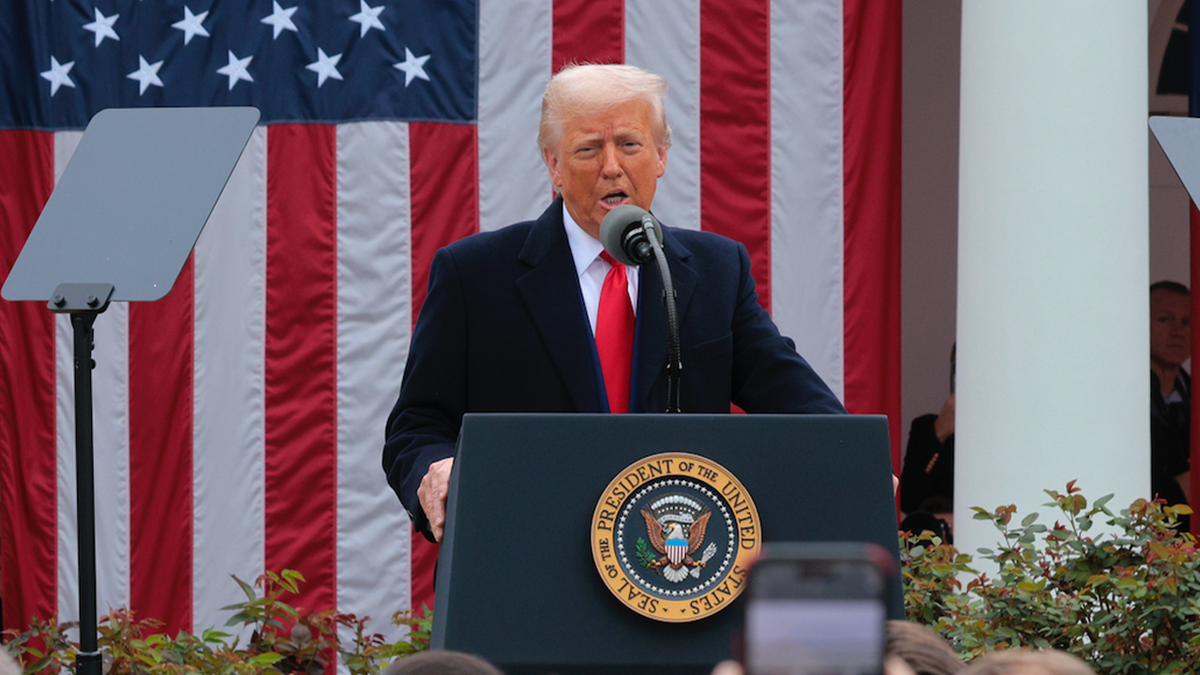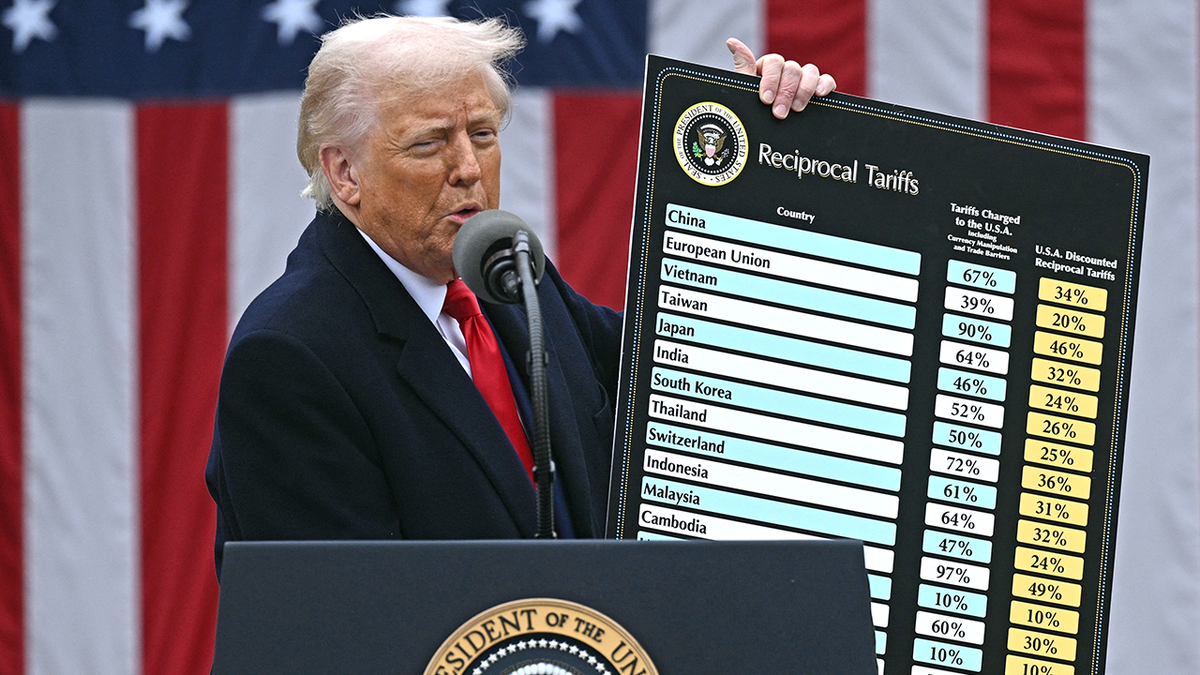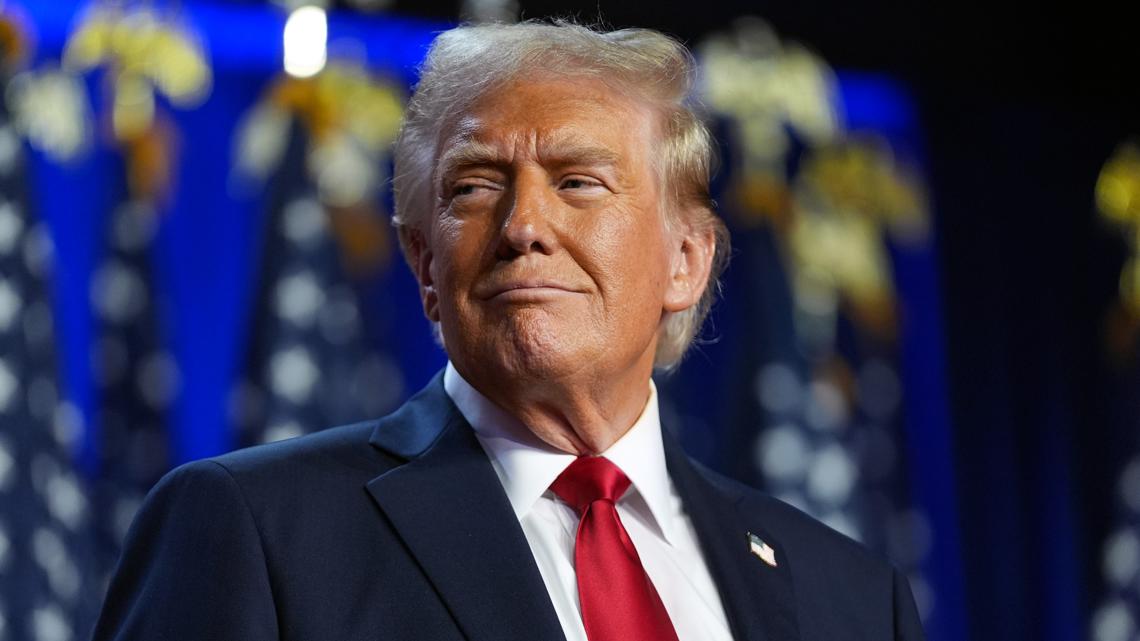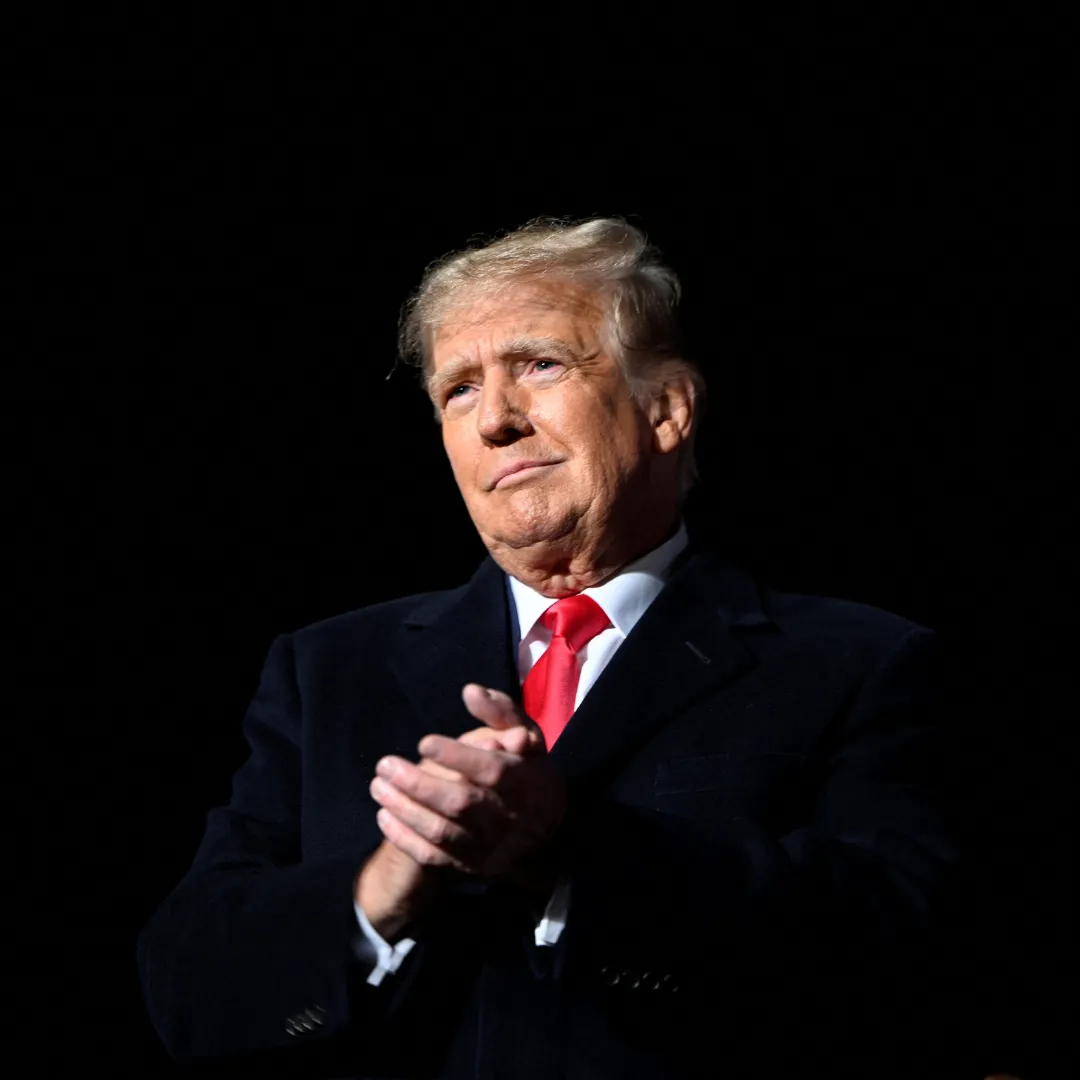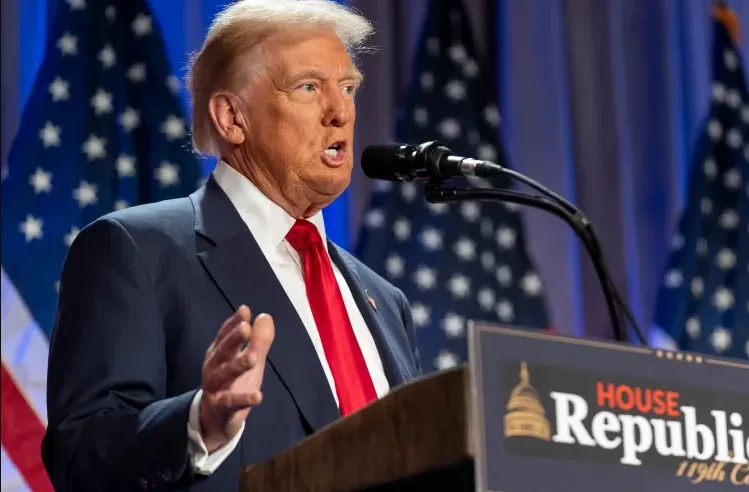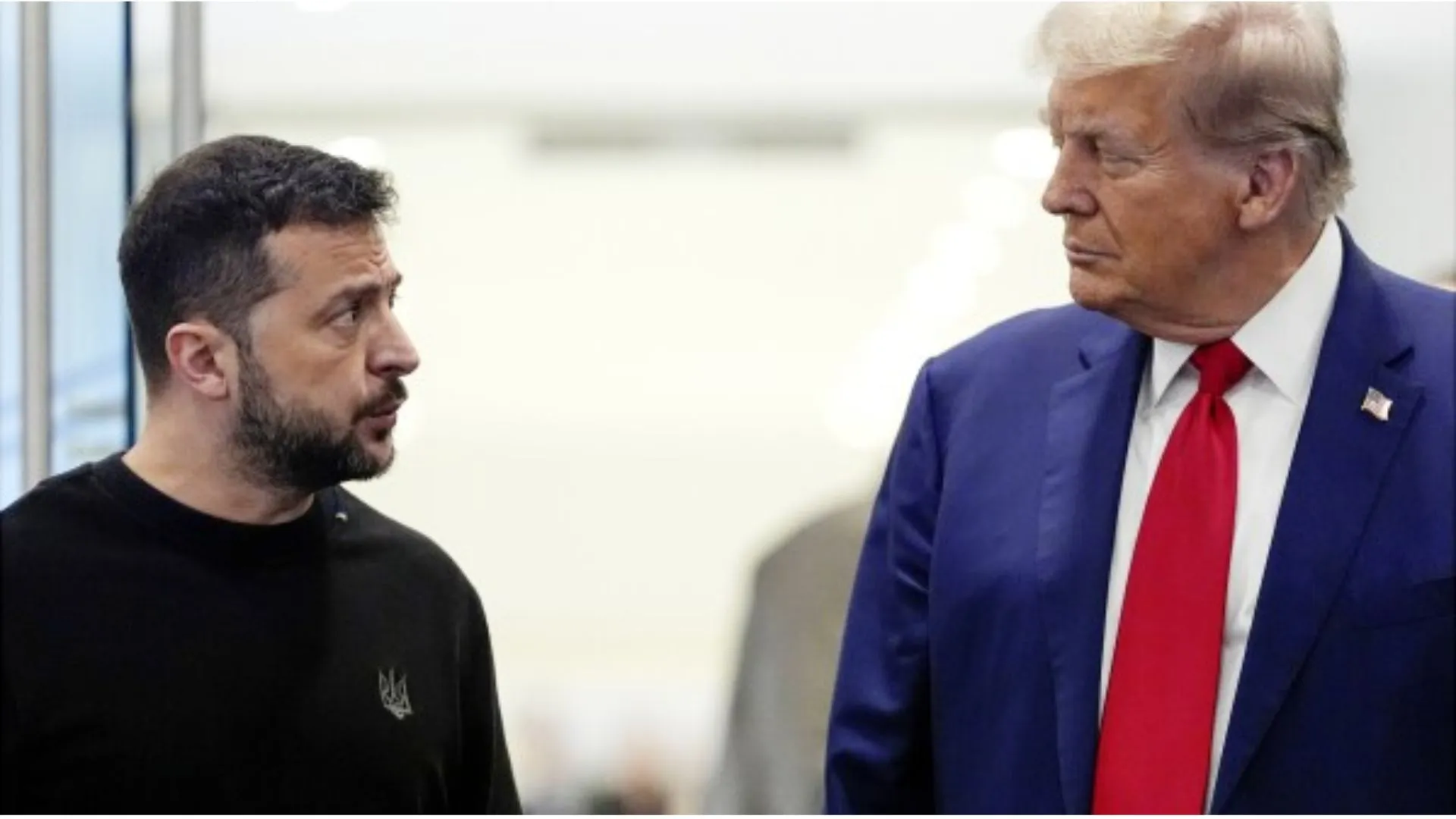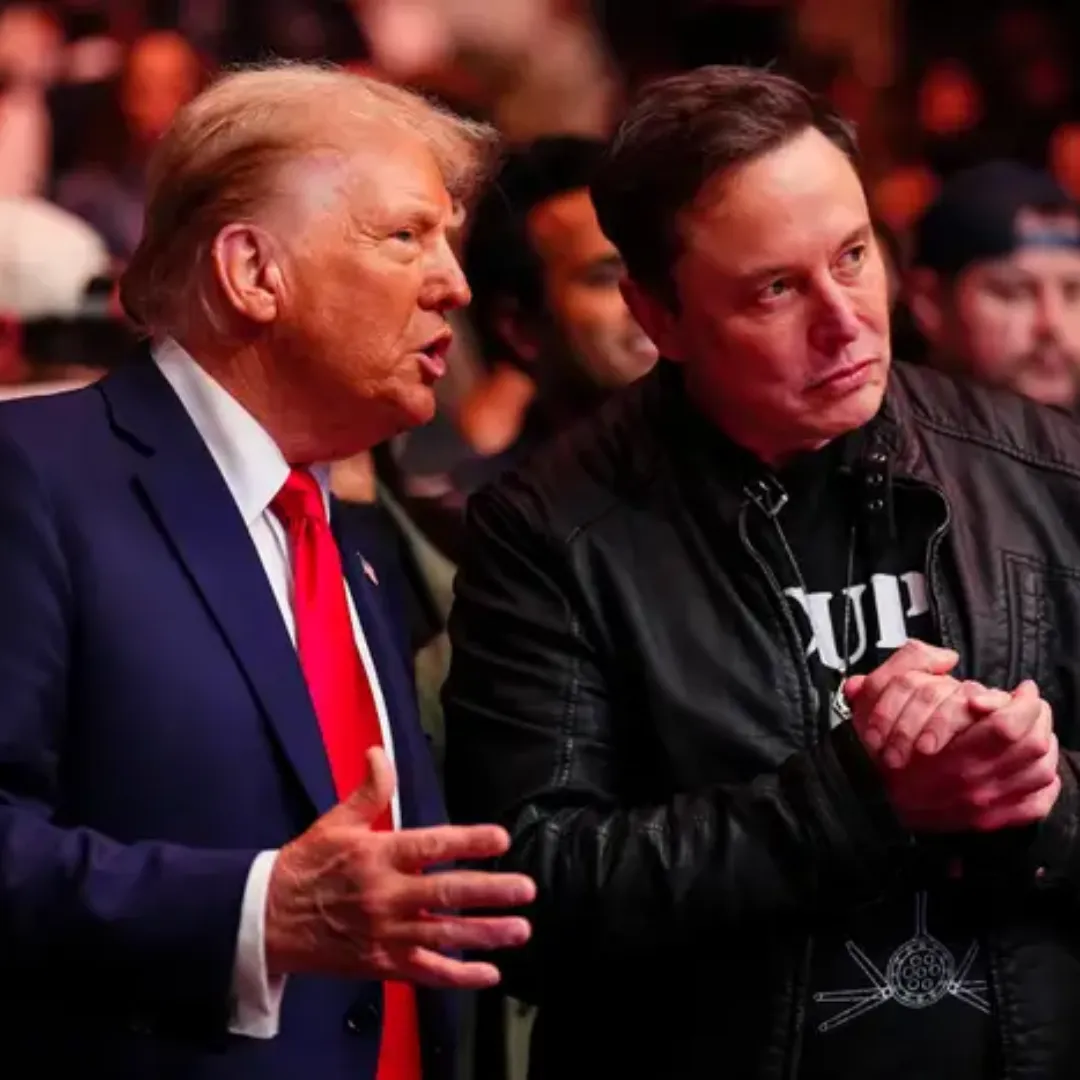In a stunning reversal that shocked financial markets and prompted a rare moment of honesty from even the most loyal corners of conservative media, President Donald Trump abruptly paused his sweeping reciprocal tariff policy on Wednesday — after days of publicly doubling down.
And even Fox News, his longtime media ally, couldn’t spin it differently: Trump capitulated.
The use of the word “capitulated” — spoken by Fox Business Network senior correspondent Charlie Gasparino — carried a particular weight. Not just because it acknowledged the White House had yielded under pressure, but because it did so on a network that has typically offered full-throated defenses of Trump's economic moves.
The truth, it seems, could no longer be hidden: the bond market forced the president’s hand.
Gasparino, known for his insider financial sources, made clear that the yield on the 10-year Treasury bond jumping to 4.50% was the immediate trigger behind the White House’s shift.
“I mean, let’s be clear what happened, who capitulated here and why?” Gasparino asked viewers. “It is the White House who capitulated based on everything I hear and all my sources, and the reason why is because of the bond market and what happened last night.”
The climb in bond yields had sent warning signals throughout the financial sector. Rising yields often signal investor fears over inflation and debt — but they also increase the cost of borrowing across the economy. Mortgages, car loans, business expansion — all of it becomes more expensive.
“When you have yields on the 10-year rising to 5%, stuff starts shutting down,” Gasparino continued. “The lending markets get screwed up.”
One particularly damaging revelation came from Gasparino’s sources within the financial world. Contrary to speculation that China was retaliating against U.S. tariffs by unloading American debt, it was Japan — a U.S. ally and one of the world’s largest holders of U.S. Treasury bonds — that had started selling.
“While he was negotiating with Japan, Japan… was dumping bonds,” Gasparino said. “They believed this was no longer a great place to do business.”
The bond dump was seen as a direct signal from financial institutions that Trump's economic instability was making the U.S. a risky investment. For a president who’s repeatedly prided himself on being a dealmaker and a businessman, it was a devastating blow.
Trump had spent days ramping up rhetoric around his tariff strategy, threatening punitive measures on dozens of countries, and branding his approach as a path to "economic sovereignty."
But by midday Wednesday, as markets were on the verge of total meltdown, he changed course.
“I have authorized a 90 day PAUSE,” Trump posted on social media, attempting to frame the decision as part of ongoing negotiations with more than 75 countries.
In truth, it was a tactical retreat. While he maintained a 10% tariff on most global imports and hiked tariffs on Chinese goods to 125%, the broad and sweeping reciprocal tariffs on other trade partners — many of whom had not retaliated — were shelved.
Treasury Secretary Scott Bessent, speaking to reporters afterward, confirmed the administration’s reversal. He tried to put a positive spin on the decision, saying it created space for “bespoke negotiations,” but few in the financial world were fooled.
The market reaction to Trump’s pause was immediate and euphoric.
-
The S&P 500 surged 8.3%, reversing two days of deep losses.
-
The Dow Jones Industrial Average soared by 2,640 points — nearly 7%.
-
The Nasdaq Composite jumped 10.3%, one of its biggest single-day gains in decades.
For traders and investors, it was a moment of relief — but also one of vindication. Many had warned that Trump’s unpredictable trade policy was pushing the U.S. toward recession. The sudden reversal only confirmed their fears had been valid all along.
As one analyst put it, “Markets didn’t rally because they trust Trump. They rallied because he blinked.”
In politics, few words carry the sting of “capitulation.” For Trump, who built his political identity on strength, dominance, and never backing down, the admission — even by proxy — that his administration was forced to fold was a reputational setback.
Gasparino was blunt: “Peter Navarro was talking as of yesterday about not taking the win. And now they did. And it’s all because of the bond market.”
Navarro, Trump’s longtime trade advisor and a fierce China hawk, had publicly insisted that the tariffs would hold. His reversal underscored how deeply the market panic had shaken even the administration’s most hardline figures.
And for those who have followed Trump’s presidency closely, the episode was familiar: push until crisis, then pull back just enough to avoid collapse — all while claiming victory.
This isn’t the first time Trump’s economic policies have followed this cycle. From past trade wars to government shutdowns, and even his management of COVID-era relief packages, the pattern has remained consistent:
-
Launch bold, often erratic policy.
-
Watch markets or public backlash escalate.
-
Retreat quietly, while claiming credit for de-escalation.
In this case, the stock market’s reaction exposed the underlying fragility of Trump’s economic management. The world was watching — and it saw a White House that blinked when capital markets pushed back.
Perhaps the most surprising development wasn’t Trump’s reversal — it was Fox News acknowledging it. Senior correspondent Charlie Gasparino calling it a “capitulation” was a break from the usual party line.
Even Trump loyalists on social media were stunned.
“This might be the first time I’ve heard Fox admit Trump folded,” one viewer posted on X.
The moment suggested that even conservative media may be reaching a breaking point when it comes to defending economically catastrophic moves.
Whether this tariff fiasco will have long-term political consequences remains to be seen. But for the Democratic opposition, the narrative practically writes itself.
They are now framing Trump not only as reckless, but as weak — a leader who launched a trade war, created chaos, then quietly backed down under market pressure.
And with the 2026 midterms looming, the image of a president forced to retreat under pressure from global investors could become potent political ammunition.
The events of the week make one thing abundantly clear: it wasn’t Congress, public outcry, or diplomacy that forced Trump’s hand. It was the bond market.
The financial world sent a signal — and the White House, despite all its bravado, got the message.
Even Fox News admitted it. Trump didn’t negotiate a victory. He capitulated.
